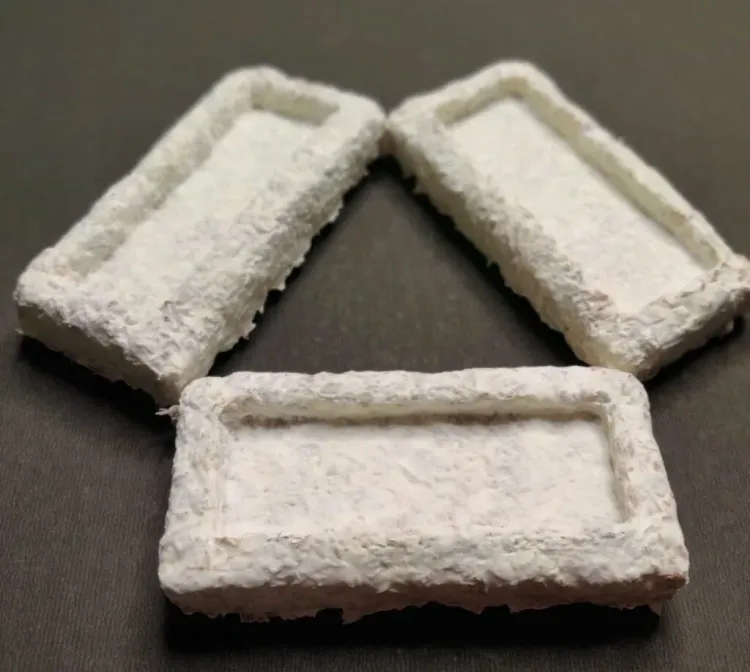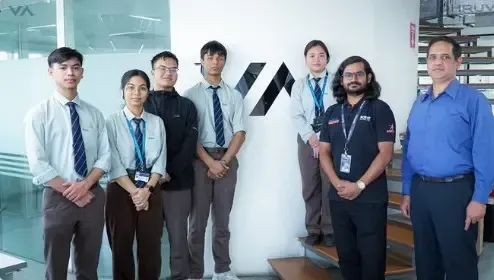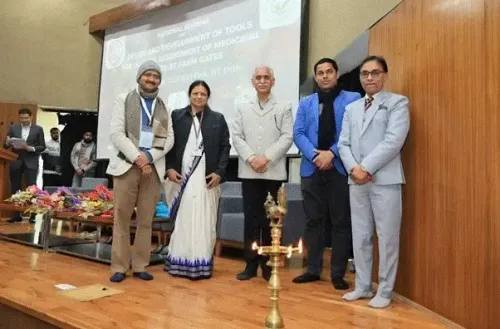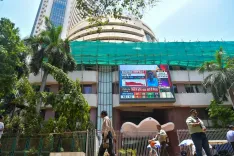Can IIT Madras’ New Agri-Waste Packaging Material Reduce Plastic Usage?

Synopsis
Key Takeaways
- Sustainable alternative: The packaging material is derived from agricultural waste.
- Biodegradable: The mycelium-based biocomposites are fully compostable.
- Plastic reduction: This innovation aims to cut down over 4 million tonnes of plastic waste annually in India.
- Circular economy: The approach aligns with principles of sustainability.
- Versatile applications: The technology can be modified for various uses beyond packaging.
New Delhi, July 31 (NationPress) Researchers at the Indian Institute of Technology (IIT) Madras have invented a packaging material derived from agricultural waste, presenting a viable and sustainable substitute for traditional plastic foams used in packaging.
The team showcased that mycelium-based biocomposites cultivated on agricultural and paper waste deliver both quality and biodegradability in packaging.
The results were published in the peer-reviewed journal Bioresource Technology Reports, providing a practical solution to two pressing issues: plastic pollution and the disposal of agricultural waste.
By transforming agricultural residues into robust, biodegradable packaging solutions, these mycelium-based biocomposites are set to directly aid in the reduction of plastic waste in India, which currently surpasses 4 million tonnes annually.
“In India, over 350 million tonnes of agricultural waste are produced each year, much of which gets burned or left to decompose, resulting in air pollution and the squander of valuable resources. Our research aimed to tackle both challenges -- plastic pollution and agricultural waste -- by creating mycelium-based biocomposites as eco-friendly, biodegradable packaging materials,” stated Dr. Lakshminath Kundanati, Assistant Professor at the Department of Applied Mechanics and Biomedical Engineering, IIT Madras.
The research team cultivated fungi like Ganoderma lucidum and Pleurotus ostreatus, various types of mushrooms, using agricultural and paper waste materials such as cardboard, sawdust, paper, cocopith, and hay.
This strategy not only diverts agricultural waste from open burning but also produces fully compostable packaging solutions, adhering to circular economy principles, according to the researchers.
“The study identifies the optimal substrate–fungus combinations that exceed the performance of traditional foams like EPS and EPE, with Ganoderma on cardboard achieving compressive strengths significantly higher than EPS (Expanded Polystyrene),” said Sandra Rose Biby, a Research Scholar at IIT Madras.
Transitioning from plastic foams like EPS and EPE to mycelium-based biocomposites could drastically alleviate landfill pressure, prevent microplastic generation, and reduce greenhouse gas emissions linked to plastic manufacturing and waste incineration.
Additionally, the mycelium composites can be further tailored for various engineering applications, including thermal and acoustic insulation materials, according to the researchers.










